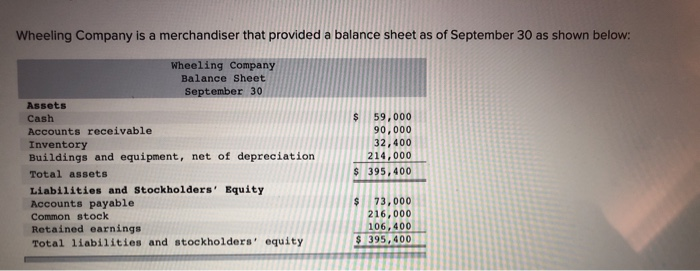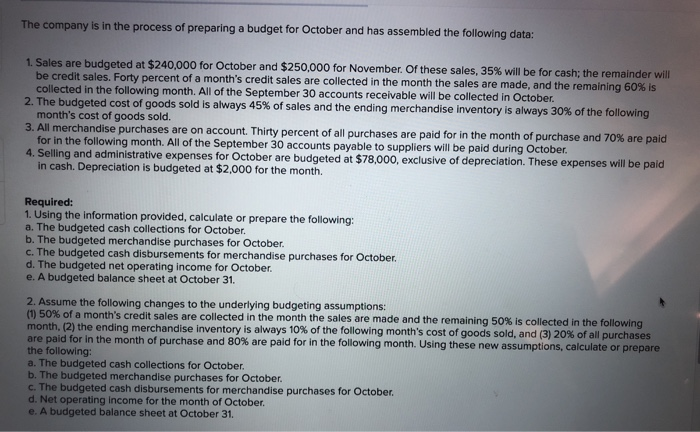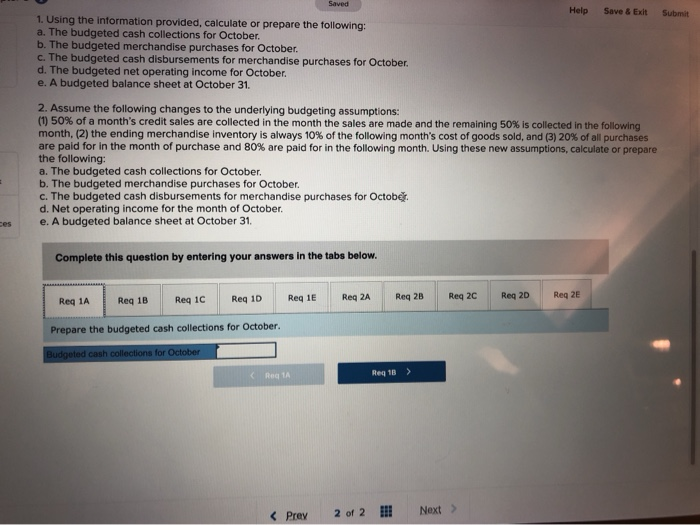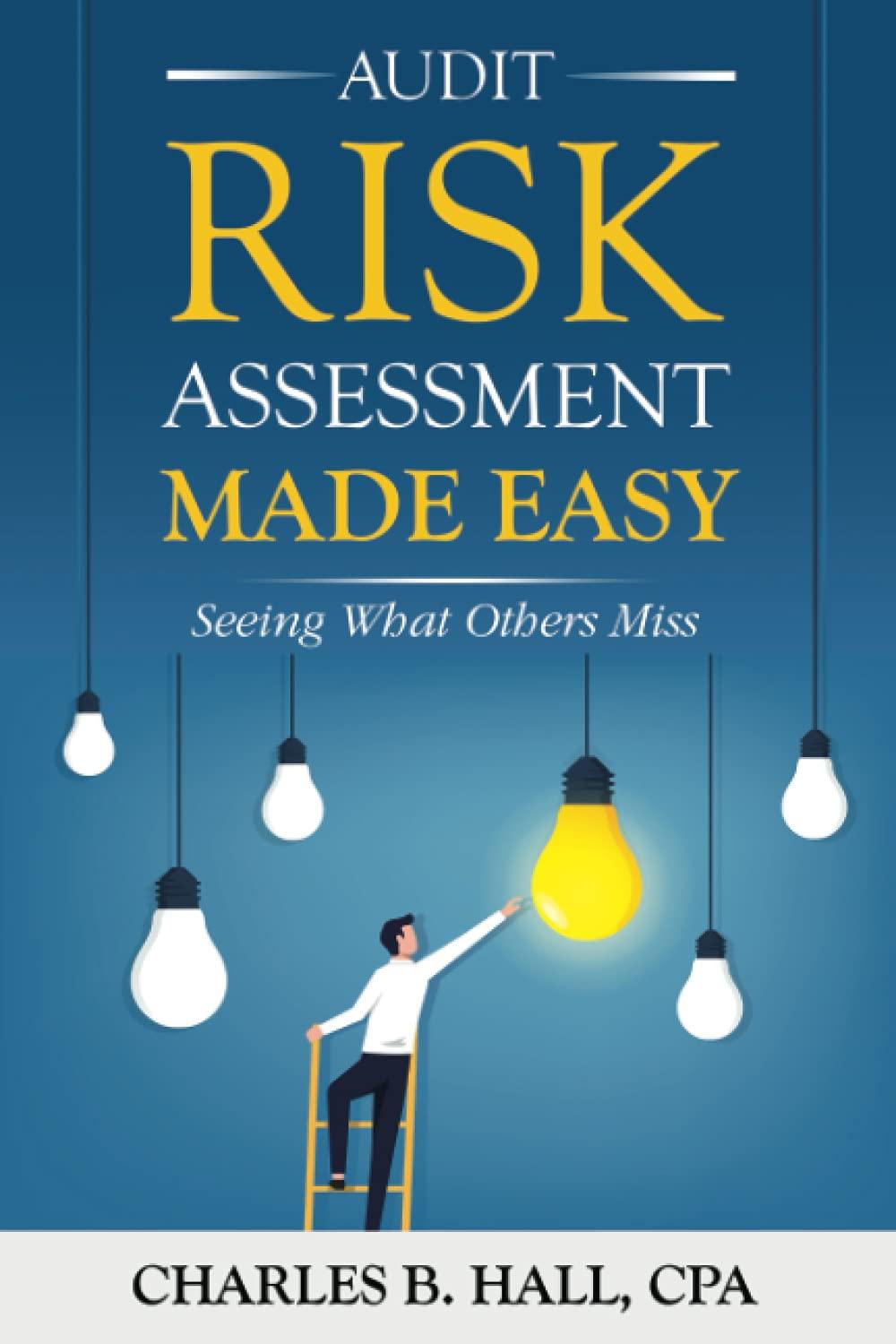pleasd answer question 1 (A-E)
Wheeling Company is a merchandiser that provided a balance sheet as of September 30 as shown below: Wheeling Company Balance Sheet September 30 Assets Cash Accounts receivable Inventory Buildings and equipment, net of depreciation Total assets Liabilities and Stockholders' Equity Accounts payable Common stock Retained earnings Total liabilities and stockholders' equity 59,000 90,000 32,400 214,000 395,400 73,000 216,000 106,400 $ 395,400 The company is in the process of preparing a budget for October and has assembled the following data: 1. Sales are budgeted at $240,000 for October and $250,000 for November. Of these sales, 35% will be for cash; the remainder will be credit sales. Forty percent of a month's credit sales are collected in the month the sales are made, and the remaining 60% is collected in the following month. All of the September 30 accounts receivable will be collected in October. 2. The budgeted cost of goods sold is always 45% of sales and the ending merchandise inventory is always 30% of the following month's cost of goods sold. 3. All merchandise purchases are on account. Thirty percent of all purchases are paid for in the month of purchase and 70% are paid for in the following month. All of the September 30 accounts payable to suppliers will be paid during October. 4. Selling and administrative expenses for October are budgeted at $78,000, exclusive of depreciation. These expenses will be paid in cash. Depreciation is budgeted at $2,000 for the month. Required: 1. Using the information provided, calculate or prepare the following: a. The budgeted cash collections for October. b. The budgeted merchandise purchases for October C. The budgeted cash disbursements for merchandise purchases for October d. The budgeted net operating income for October e. A budgeted balance sheet at October 31. 2. Assume the following changes to the underlying budgeting assumptions: (1) 50% of a month's credit sales are collected in the month the sales are made and the remaining 50% is collected in the following month, (2) the ending merchandise inventory is always 10% of the following month's cost of goods sold, and (3) 20% of all purchases are paid for in the month of purchase and 80% are paid for in the following month. Using these new assumptions, calculate or prepare the following: a. The budgeted cash collections for October b. The budgeted merchandise purchases for October. C. The budgeted cash disbursements for merchandise purchases for October d. Net operating Income for the month of October e. A budgeted balance sheet at October 31. Help Save & Exit Submit 1. Using the information provided, calculate or prepare the following: a. The budgeted cash collections for October. b. The budgeted merchandise purchases for October. c. The budgeted cash disbursements for merchandise purchases for October. d. The budgeted net operating income for October. e. A budgeted balance sheet at October 31. 2. Assume the following changes to the underlying budgeting assumptions: (1) 50% of a month's credit sales are collected in the month the sales are made and the remaining 50% is collected in the following month, (2) the ending merchandise inventory is always 10% of the following month's cost of goods sold, and (3) 20% of all purchases are paid for in the month of purchase and 80% are paid for in the following month. Using these new assumptions, calculate or prepare the following: a. The budgeted cash collections for October b. The budgeted merchandise purchases for October. c. The budgeted cash disbursements for merchandise purchases for October d. Net operating income for the month of October e. A budgeted balance sheet at October 31. Complete this question by entering your answers in the tabs below. Reg 18 Regic Reg 10 Regie Reg 2A Reg 2B Reg 1A Req 2c Req 20 Req ZE Prepare the budgeted cash collections for October. Budgeted cash collections for October RAGA Reg 18 >









